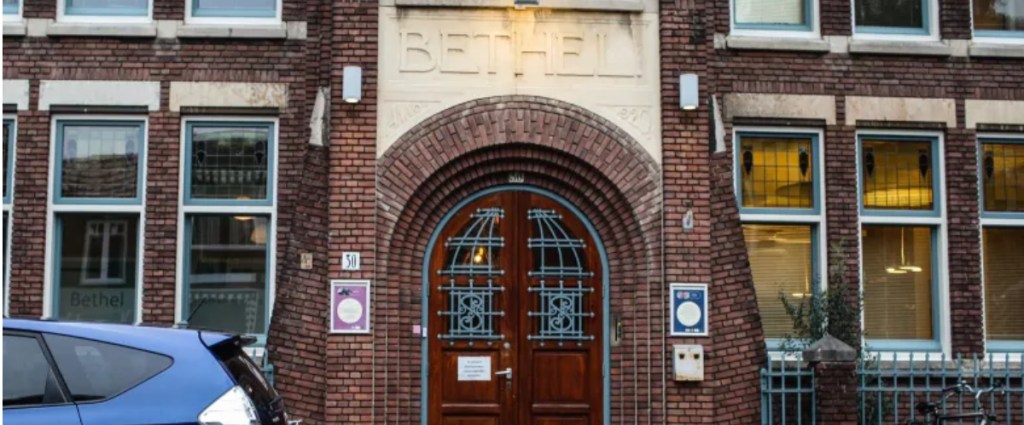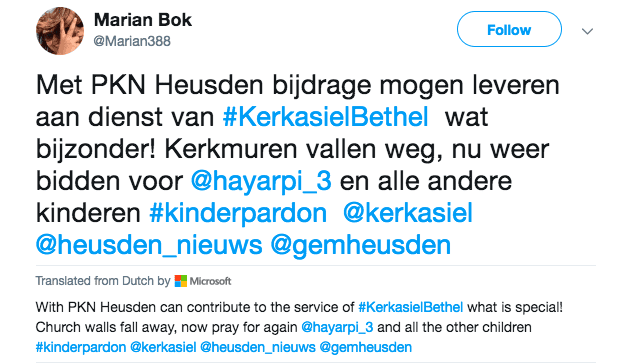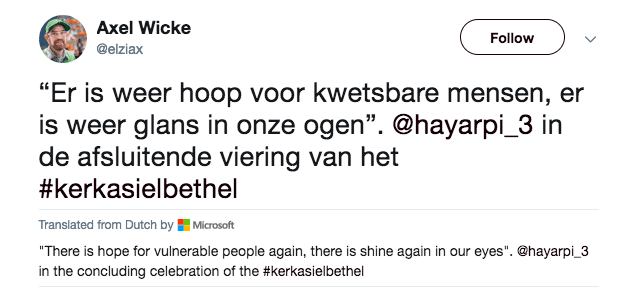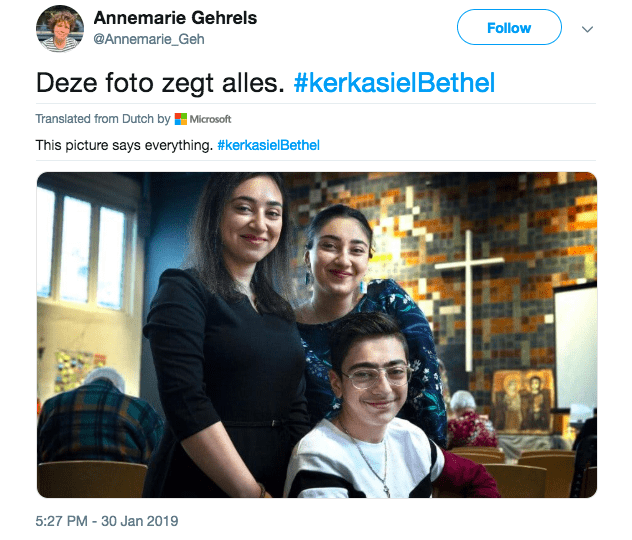There’s an obscure Dutch law that forbids law enforcement from interrupting church services, so since the 1970s citizens have been using it to protect refugee families threatened with deportation – first to protect a group of 182 Moroccans who were later granted the right to stay in the Netherlands and, today, to protect an Armenian family with three children.
The law turns churches into a ‘kerkasiel’ (a church asylum), a place of refuge as long as a service is ongoing. That’s a crucial detail, right there.
For the Bethel Church looking to protect the Tamrazyan family, who have lived in the Netherlands for nine years, that means they’ve been in a continuously active service since October 26th.
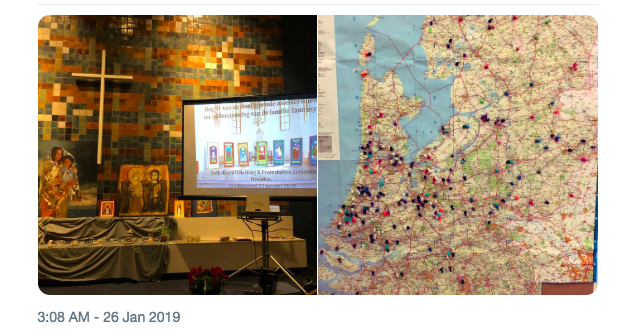
Photo Credit: Twitter
Hayarpi, Warduhi, and Seyran traveled from Armenia to the Netherlands in 2010 for political reasons, and a month before the marathon services began at Bethel Church, Hayarpi posed a video on Twitter asking for help for herself and other child refugees in Holland.
“I’m asking help for me, my brother, and my sister. You have the power. Please use it to help us and the 400 children like us. We are innocent.”
The Netherlands previously had a law known as Kinderpardon that allowed the children a path to citizenship, but it changed in 2013, and the government denied the family asylum. Afterward, the family took refuge in a church in Katwijk, but moved to Bethel when the first church ran out of resources.
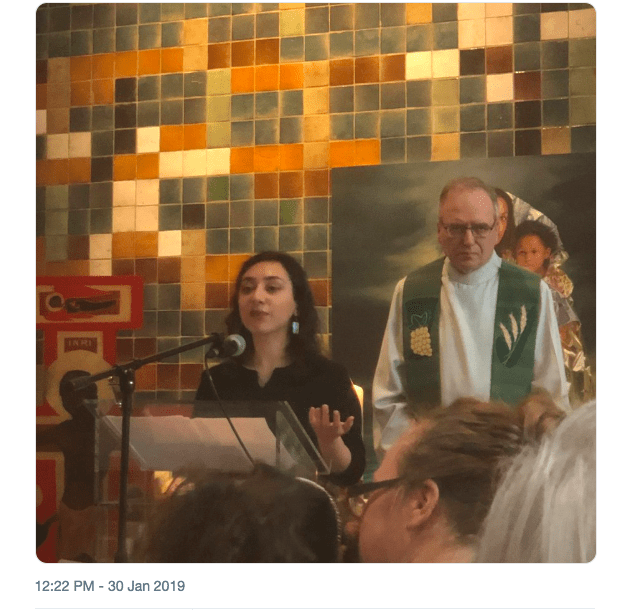
Photo Credit: Twitter
More than 550 pastors from 20 denominations rotated through Bethel Church to keep the service going – and keep the family safe. Visitors from across the country have attended, with many bringing supplies along, too.
“I’m sitting on the train on my way to #kerkasielBethel and I have brought with me tea and biscuits. I am going for the third time so I know they will finish it.”
Bethel Church has also provided psychological help for the family and continued the children’s education, since they’re unable to attend school or university. More than 250,000 citizens have signed a petition calling for the government to make asylum requests and citizenship easier for children – currently, up to 99% of applications are being denied.
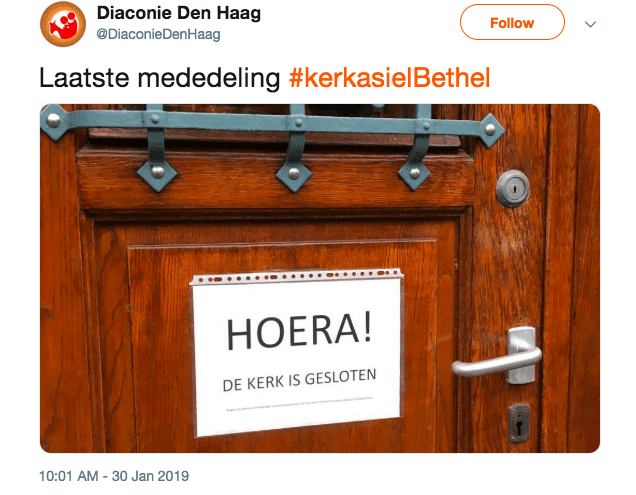
Photo Credit: Twitter
As with the case of the Moroccan refugees in the 70s, this kerkasiel could make real difference; as of January 30th, the Dutch government has agreed to reassess the cases of 700 families who are listed for deportation, including the Tamrazyans. And most of the children whose amnesty cases are being reassessed are expected to be eligible.
A sign on the door of the Bethel Church reads “Hooray! The church is closed.”

